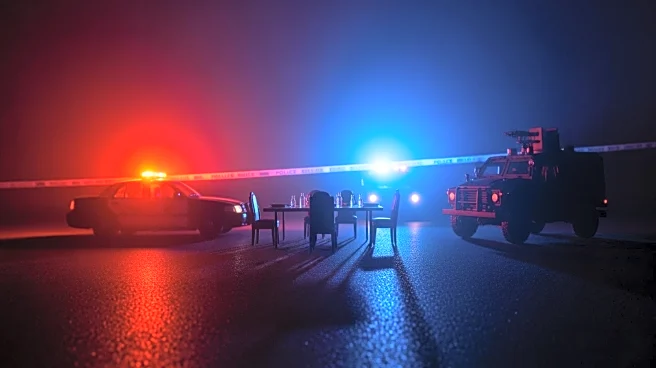What's Happening?
In Lima, Peru, military and police forces have increased their presence on the streets as a state of emergency begins under President José Jerí. The decree suspends several constitutional rights, including
freedom of assembly, and imposes restrictions on everyday activities. This measure follows Jerí's assumption of the presidency after the removal of former President Dina Boluarte, who was criticized for failing to curb rising crime. The state of emergency aims to address the surge in violence and restore order in the capital.
Why It's Important?
The state of emergency in Lima reflects the government's urgent response to escalating crime rates and public unrest. The suspension of constitutional rights raises concerns about civil liberties and the balance between security and freedom. The increased military presence may provide temporary relief from crime but also risks alienating the public and sparking further protests. The effectiveness of these measures will be crucial in determining the government's ability to maintain stability and address the root causes of violence.
What's Next?
As the state of emergency unfolds, the government will monitor its impact and make necessary adjustments. Public reactions and protests may influence future policy decisions, and authorities may engage with community leaders to address concerns. The success of these measures will be critical in shaping the political landscape and determining the government's ability to maintain order. The international community may also watch closely, as Peru's approach to crime and governance could have implications for regional stability.
Beyond the Headlines
The declaration of a state of emergency raises questions about the government's approach to law enforcement and its impact on democratic principles. The suspension of rights may lead to debates about the balance between security and civil liberties. Additionally, the involvement of military forces in civilian policing could have long-term implications for civil-military relations and the role of the armed forces in domestic affairs. The situation in Lima serves as a reminder of the challenges faced by governments in addressing crime and maintaining public trust.










